Commentaires de livres faits par mistinguette60
Extraits de livres par mistinguette60
Commentaires de livres appréciés par mistinguette60
Extraits de livres appréciés par mistinguette60
Sexe c'est problème, international problème.
Geopolitical conflict.
Deux entités doivent parvenir à établir des relations normalisées, grâce à une progression scalaire dans la réduction de l'espace qui les sépare.
PRIMO : le visus, la reconnaissance visuelle de l'autre. Un autre enfin digne d'intérêt, c'est-à-dire un autre pas comme les autres. Ainsi, les sentinelles aux yeux perchés sur le mirador de l'être, ou plutôt de la nation, ont mission aux frontières de donner l'alerte dès qu'un événement le mérite.
Quelqu'un ou quelque chose cherche à s'approcher, quel degré de menace cela représente-t-il pour l'entité aux aguets ? Violation d'espace vital, ou visite bienvenue ?
DEUXIO : après ce premier stade d'observation et de reconnaissance mutuelle, vient le passage à l'allocutio, premières paroles, premières questions, dont la principale : y a-t-il ou non langage commun, ou bien va-t-il falloir sans cesse deviner ce que l'autre tente de vous transmettre sur le mode verbal ? Dans le meilleur des cas, on assiste à la naissance d'un dialogue. C'est-à-dire, une succession de malentendus, qui s'avère historiquement fondée comme mode de relation à tous les étages. Parfois, la langue de l'un empêche l'autre de répondre, pour peu que le premier impose sa sienne de langue comme condition impérative et préalable à tout échange. On en voit qui ravalent leur langue, qui oublient leur langue, pour accepter la langue de l'autre dans leur propre bouche, se mettant à la prendre pour la parler à leur tour.
L'usage d'une langue ne va pas de soi, et dans de nombreux cas, quand une langue devient active, l'autre devient passive. C'est bien sûr problème. Tertio : le tactus. Mises en confiance par un langage commun, les deux nations vont franchir le pas, c'est-à-dire se risquer chez l'autre, hors de leurs limites, et oser la rencontre tactile : poignées de mains, accolades, bourrades ambiguës, tout ce qu'un corps diplomatique peut inventer comme gestes brise-glace en vue du rapprochement désiré. Il ne s'agit de rien d'autre que de réduire le sentiment d'étrangeté ressenti face à l'autre. De passer de la xénocrainte à une familiarité enviable.
Attention, on ne baisse pas la garde pour autant, la vigilance reste de mise, mais c'est bien là le prélude à une ouverture plus grande, pleine de promesses, glasnost, voire perestroïka, chéri.
source: amazon
Vicki
Leading up to Sunsday, Grau 30
It wasn't my fault.
Okay, it sort of was my fault because I should have realized that the Crowgard who worked for me would be wildly excited about a human celebration called Trickster Night and want to participate firsthand-firstwing?-in such an event. I also should have realized they would tell the rest of the Crows and other forms of terra indigene who lived in The Jumble about a human custom of dressing up and putting on masks to try to look scary. In the weeks prior to that actual night, Aggie, Jozi, and Eddie Crowgard pestered every human who visited The Jumble about how to "Trickster properly"-choice of costumes, choice of treats, what to say and what to do.
Wayne Grimshaw, Sproing's chief of police, was sparse with details whenever he dropped by to check up on me. Julian Farrow, who owned Lettuce Reed, the village's bookstore, was cautious with his explanations. Paige and Dominique Xavier, on the other hand, gleefully told the Crows about their childhood adventures and what they wore when they knocked on neighbors' doors and shouted, "Trick or treat!"
After receiving one of Grimshaw's patented grim looks, which turned his blue-gray eyes a steely gray, Paige and Dominique quickly emphasized that playing tricks was not the point of the evening.
"It won't be that bad," I had muttered to Ineke Xavier one afternoon as we waited by her car for Paige and Dominique to finish "explaining" a few more details about Trickster Night to my Crowgard employees. "My bookings for the lake cabins and the suites in the main house are all adult guests. No children."
"Have you bought enough bags of candy to hand out?" Ineke asked, sounding mildly curious.
"Mildly curious" coming from a woman who had a tattoo on one thigh that included the words "I Bury Trouble" was not to be mistaken for actual mild curiosity.
"Who is going to come out to The Jumble for a piece of hard candy?" I asked.
"Pops Davies mentioned that you hadn't come by the general store to pick up the bags of candy he'd set aside for you. Small chocolate bars."
I blinked. "Chocolate? Really?" Ever since the Great Predation-a terrifying time last year when the Elders and Elementals swept over the world and seriously thinned the human population as retaliation for the Humans First and Last movement starting a war and killing shifter forms of terra indigene-some things weren't as readily available as they used to be, and that included small bars of chocolate. I could put out some of the chocolate for my guests and keep a stash for myself for the times when I needed a reward for getting through a difficult day.
I made a mental note to call Pops and let him know I was interested in the chocolate so he wouldn't sell it to someone else.
"You're fully booked for the days before and after Trickster Night?" Ineke asked, still sounding mildly curious and calling me back from my distraction-by-chocolate.
"Yes." I had been fully booked for weeks, so I hadn't thought there was anything unusual about these reservations since we were just coming to the end of our peak tourist season and still required a three-day-minimum reservation-but I was catching on that maybe, just maybe, I had done something to earn the look Grimshaw had given me last night when he came over to play pool with Ilya Sanguinati, who was a very yummy-looking vampire and my attorney.
"So am I," Ineke said. "It's unusual to have people specifically booking a three-day stay midweek to make sure they are here for Trickster Night." She took pity on me. "The Jumble's residents are going to have the most amazing costumes."
"They don't need costumes. Most of them . . ."
I finally got it. Aggie, Jozi, and Eddie could pass for human unless they got excited and started sprouting black feathers. Robert "Call Me Cougar" Panthera and Conan Beargard could pass for human if you ignored Conan's excess body hair and the fact that the boys still had trouble with their teeth. They were getting those sorted out as they spent more time around humans, but the teeth were still an unnerving mix of human and large predator. As for the rest of The Jumble's terra indigene residents . . .
The between form isn't fully an individual's animal form and it isn't fully human, and it sure isn't whatever they look like in their true form, which is a form no human gets to see unless the human is the main course for that night's dinner. Maybe not even then, because the one time I asked Ilya why the Others' true forms were such a big deal, he said very, very quietly, "You don't want to know, and you should not ask anyone else."
I took the hint and never mentioned it again.
The days prior to Trickster Night, I juggled looking after my current guests, getting ready for my soon-to-arrive guests, and approving the "costumes" of The Jumble's full-time residents. After I persuaded Aggie, Jozi, and Eddie that a between form that mixed too much Crow with their human forms would be bad for business, they agreed to keep their shifting to a human-size Crow head and a few feathers on their hands, which would be startling enough but wouldn't freak out the guests. I hoped. It also meant they couldn't talk to the guests or convey any messages about what the guests might want, but I could live with that for one evening. As for the rest of the Others who wanted to mingle with the humans in order to study them during this celebration . . .
Female Fox with foxy ears, foxy tail showing through a slit in her capris, and foxy front paws with elongated digits that were necessary to hold her treat sack. Cute.
Male Bobcat who looked the way he usually did when he took guests on a donkey-cart tour of The Jumble-in other words, he looked more Bobcat than human but could converse with humans. More or less. His "costume" consisted of a short cape that might have come from the large cardboard lost-and-found box I had tucked away in one of the first-floor rooms I wasn't currently using. I was certain some guests left things behind on purpose-a book, a sweater, a hairbrush-so that the Others could use them. And some things were left behind because the guest was in too much of a hurry to leave to check the closet or drawers.
Interestingly enough, it was the guests who were rude, too demanding, or "handsy" with Aggie, Jozi, or me who were motivated to leave in a hurry. I never asked who did the motivating, since there were scarier forms of terra indigene living around Lake Silence than a Panther, a black Bear, and the Sanguinati, and I really didn't want to know for sure that they were studying my guests in the same way some of my guests studied the more . . . benign? . . . forms of Others.
Back to the costumes. There were other blends of human and animal that . . . Okay, the individual was going for scary, and that included Cougar and Conan, which forced me to explain that there were degrees of scary, and if they didn't want to pour a thick layer of sand-or kitty litter-in front of the door to soak up all the pee from terrified children and adults, they needed to adjust their Trickster Night look to something that wasn't too scary.
I sat through, including the boys, six individuals "adjusting" their look until I gave them thumbs-up, no-pee approval. Then I took the key to the liquor cabinet that held Grimshaw and Julian's private stash of sipping whiskey, chose the bottle that was open without looking at the label, and poured myself a hefty dose of courage, which got me through the rest of that day.
Check-in time is two p.m., and I was fully booked. Not that I had many available rooms. At this time of year, I didn't offer the "primitive" cabins. Out of the twelve cabins that were in The Jumble, three cabins located near the lake had been renovated and had updated electricity and indoor plumbing. Two were available for guests, since the three Crowgard who worked for me occupied the third cabin. I also had two suites with private bathrooms in the main house. Sleeping arrangements for the two renovated cabins were two single beds in one and a double bed in the other. The suites in the main building had a double bed and a sofa bed in each. The sofa beds were a recent purchase IÕd made for the guests who did bring a child or other relative to The Jumble, but it also worked for a variety of sleeping arrangements.
All of my Trickster Night guests arrived on Grau 30 shortly before check-in and spent the time making small talk while I got the registrations sorted out. All adults, which I'd expected. Fred and Wilma Cornley, an almost-newlywed couple, had reserved one of the suites in the main house. The other suite was reserved by Ben Malacki and David Shuman, who were professors at one of the universities in the Finger Lakes. I figured they would flip a coin to see who slept on the sofa bed and who got the double bed. Jenna McKay had the cabin with single beds because she'd originally booked a reservation for two people, but her friend had canceled at the last minute. When Jenna heard that Ian and Michael Stern, cousins who had ended up with the last cabin, were going to flip a coin to see who got the double bed and who would sleep on the air mattress and sleeping bag they'd packed as a "just in case" option, she offered to switch cabins with them so that they could have the two single beds. That worked well for everyone, and assisted by my Crowgard employees, three of my guests headed for their homes away from home in high spirits.
Who slept where wasn't any of my business as long as guests didn't create a mess or draw too much attention to themselves. But I had that part covered by the sign on the reception desk that read: If your behavior attracts attention, YOU have to explain that behavior to someone who might eat you. Good luck.
It wasn't subtle, so most guests got the point, and no one had been eaten since that unpleasantness this past summer when my ex-husband and his cronies had tried to force me out of The Jumble in order to turn it into a posh resort.
I escorted the Cornleys and the two professors up to their suites, giving them a rundown of possible activities they could enjoy during their stay, emphasizing tomorrow night's festivities since I assumed those were why they were here and also pointing out that the TV was already reserved for the evening. Since this was the only TV available to guests, it was a not-so-subtle way of saying Make out your will before you attempt to change the channel.
This being cop and crime night, I had ordered enough pizza and salads from the Pizza Shack in Sproing to feed my employees and guests. As the proprietor, I'm supposed to be available for guests, but Conan and Cougar made it clear to everyone that no one who wanted to keep all their digits disturbed me or the rest of the staff during the cop and crime shows.
Surprisingly, all the guests stayed to watch the shows with us, even the almost newlyweds. The men chowed down on pizza-wisely not touching the one called the Carnivore Special after Conan and Cougar growled at them-and fielded questions about human behavior both in the show and in the commercials. Jenna and Wilma ate mostly salad, which they almost dumped on themselves when Aggie jumped up and started yelling at one of the cops in the show when he paid no attention to the crow in the trees, who, according to Aggie, was trying to warn him that the sneaky human had just passed that way and was waiting to spring a trap.
That created a lively discussion during commercials about whether the cop, who didn't speak crow or Crow, could have realized he was being warned. And then everyone wondered if the crow had been just a bird that happened to be in a tree when that scene was shot or if it was supposed to be one of the Crowgard.
That led to questions of how to write to the show and suggest that they hire a Crow to assist the cops in the show in the same way the Crowgard assisted the police who protected Sproing.
My guests were fascinated by this claim of assistance. I ate my pizza and thanked all the gods that Grimshaw hadn't decided to drop by to play a game of pool and snag a couple of slices of pizza. I knew the look I would get if my guests started asking how the Others assisted the police in their apprehension of wrongdoers. Telling the truth-that wrongdoers were often eaten if the police didn't get to them first-would not help Sproing's tourist trade. Or my bottom line.
Grimshaw didn't watch the cop and crime shows, although he often dropped by because cop and crime night was also pizza night. Julian Farrow didn't watch those shows either, because he'd been a cop until the Incident that ended his career and he never knew if something in the shows would stir up post-traumatic memories. So whenever Grimshaw or Julian did turn up on that night, it was for pizza and pool. That's what they said, but David Osgood, the rookie police officer who worked for Grimshaw, had told Paige Xavier, who had told me, that Chief Grimshaw had made a passing comment about me being a trouble magnet, which was the real reason he stopped by a couple of times a week. Keeping his finger on the pulse, so to speak.
I preferred to think it was just a Grimshaw sort of justification for coming to The Jumble. Ilya Sanguinati had turned one of my downstairs rooms into something that looked like a pool hall just to give Grimshaw a private place to play pool. It could be used by my guests too, but when the Reserved sign was on the door, it was Grimshaw either playing on his own or playing with Julian and/or Ilya. A bit like an exclusive club-and we'd all learned how much trouble those could be, but the three males liked being able to discuss things in an informal setting. Keeping their fingers on the village's pulse-and their eyes on the trouble magnet, a label I thought was unfair since all I'd done that first time was call the police to report a dead man after I stopped Aggie from heating up one of his eyeballs for lunch
«Debout, c'est l'heure de se lever», répète la maman de Super.
Mais Super ne se réveille pas.
«Puisque c'est comme ça, je vais appeler les fourmis.»
Il y a des gens qui naissent avec une cuillère en argent dans la bouche, moi, je suis né avec une touillette.
Panneau
Pourquoi à l'abord de toutes les écoles, trouve-t-on des panneaux " Attention enfants " ? Quelqu'un a-t-il déjà vu des enfants attaquer des voitures ?
Clitoris
Après vérification, il paraît que le clitoris existe vraiment. Ma femme m'en avait déjà parlé, mais je pensais qu'elle déconnait.
Un journaliste atone commente le défilé. Place Royale. Les chars n'en finissent plus de zézayer. Assis dans notre cour fleurie, sur les coquilles blanches des chaises de jardin, nous contemplons les impatiens et le jeune camélia. A ma droite, la glycine aux doigts noueux fait craquer ses phalanges gorgées de sève. Tu es la première à sortir de la torpeur :
- Je crois qu'on doit réfléchir.
- À quoi ?
- A nous.
- A nous ?
- Oui, à nous.
À ma gauche, les tulipes pointent leurs chiffonnades jaunes. A l'angle des briques épluchées par le nord, un lilas ploie sous un vent du sud-est, léger, enveloppant. Sur les murs crème, les clématites se montent le col le long d'un arceau en bois. Je viens d'arroser l'hortensia et, dans la véranda aux épaules vertes, il flotte comme un air de vacances.
Exaspérée :
- Tu n'as pas l'air de comprendre.
- Je... Enfin, qu'est-ce que tu veux me dire ?
Mots détachés, secs, tirés à bout portant comme des balles : Touché ! Pas de quartier !
- A propos des vacances...
- Oui.
- Il vaudrait mieux qu'on parte chacun de son côté.
- Pourquoi ?
Plus qu'exaspérée :
- Mais je viens de te le dire !
- Pour réfléchir ?
- Oui, c'est ça.
Alors, cette longue phrase profilée qui me troue le coeur, cet arrêt inopportun, en pleine campagne, juste à la belle saison, l'image arrêtée de tout, du tout, le type qui lève son verre à la santé de..., la mère qui allaite le bébé sur un banc du square, tout, les fleurs si belles, ouvertes au doigt du vent et qui ne faneront jamais. C'est triste un bouquet qui ne fane jamais ! C'est idiot. Je pense à Pompéi, le ciel figé cuit dans le bouillon de ses anges déchus, en pleine fornication au quotidien... Toujours mon besoin d'images, fussent-elles intransmissibles.
Incompréhensibles.
Je me répète les paroles :
- Pour réfléchir ?
- Oui, c'est ça.
En un instant, notre coquette maison de ville se trouve réduite à un bureau d'état-major. Réunion de crise. Urgence.
États-Unis, 1968 (2007 : A Space Odyssey)
Arthur C. Clarke : The Sentinel [nouvelle], 1951.
Première édition dans le recueil The Nine Billion Names of God, trad. 1980.
Arthur C. Clarke : 2001 l'odyssée de l'espace, 1968, trad. 1968.
SYNOPSIS
Dans la préhistoire, un groupe de pré-humains survit difficilement. Un jour, un objet mystérieux apparaît. Par la suite, la tribu fait un bond dans son évolution, et découvre l'outil et l'arme. En 2001, un objet d'origine inconnue est découvert sur la Lune. Il émet un signal vers les étoiles. Quelques mois plus tard, une mission spatiale est envoyée vers les confins du système solaire. L'équipage, hormis deux astronautes, est en état d'hibernation. Le vaisseau transporte aussi un ordinateur surpuissant, HAL 9000. Ce dernier, doté d'une forme de conscience, se révolte et élimine l'équipage, sauf un seul homme, Dave Bowman. Ce dernier parvient à «tuer» l'ordinateur. Arrivé aux confins du système solaire, Bowman découvre dans l'espace un objet gigantesque, de même forme que celui trouvé sur la Lune. L'espace s'ouvre et Bowman est projeté dans une autre dimension...
Stanley Kubrick est déjà l'auteur de films aussi remarquables que Les Sentiers de la gloire (1958). Lolita (1962) et surtout Dr Folamour (1963) quand il entreprend de réaliser un film de science-fiction «adulte» et ambitieux. Comme à son habitude, il se met alors à chercher une source littéraire. Le choix de Kubrick se porte sur une nouvelle d'Arthur C. Clarke datant de 1951, intitulée La Sentinelle, publiée à l'origine dans le recueil The Nine Billion Names of God. Clarke est déjà un très grand nom de la littérature de science-fiction, mais aussi un auteur réputé d'ouvrages de vulgarisation scientifique.
La Sentinelle est un texte relativement court écrit, à la première personne du singulier, par un astronaute. Celui-ci relate une expédition sur la Lune pendant laquelle il découvre un étrange objet au sommet d'une montagne : «Une structure étincelante, ayant en gros la forme d'une pyramide, et sertie dans la roche comme un gigantesque diamant aux nombreuses facettes.» Après l'avoir étudié, on en arrive à la conclusion que cet objet fut placé là depuis des centaines de milliers d'années, voire des millions, par une civilisation extraterrestre. Objectif : celui d'une sentinelle. Lorsque les humains auraient été suffisamment évolués pour le découvrir, ils déclencheraient ainsi un signal à destination de ces êtres lointains. La nouvelle se termine sur une fin ouverte : «Je ne pense d'ailleurs pas que nous ayons longtemps à attendre.»
A partir de ce postulat, trop court et trop succinct pour un long métrage, Kubrick entame l'écriture de son scénario. Il prend également deux décisions, l'une rare, l'autre quasiment unique. La première est d'associer Clarke à l'écriture du film. L'autre est de lui faire une proposition originale : celle d'écrire un roman simultanément à l'écriture du film, afin d'avoir la plus grande liberté imaginative possible.
(...)
I first realized I was crazy on a Tuesday. I mean, I suspected it before, obviously, but I’d been hoping it was just a phase, like when I was three and I wanted to be a fire truck. But on that fateful October day she said hello after the last bell, and it was official—I was completely bonkers.
Tuesdays are usually my favorite day of the week. It’s a weird day to like, but for me, a gangly, eccentric thirteen-year-old social oddity with only one real friend, it has some serious perks.
For one thing, we don’t have football practice. Most kids probably like football practice, but when you’re the backup kicker, you mostly just sit there and watch bigger, stronger kids run into each other and incur lifelong brain trauma. I know they’re still studying that and all, but just talk to Dale Howard for a few minutes, and you can pretty much put a yellow warning label on the helmets.
Sometimes I get the team Gatorade—actually, I carefully arrange the cups into perfect geometric patterns to simplify drinking and reduce potential spillage—but that’s the only fun part. Usually I just sit on the bench by myself and think about what would happen if aliens attacked the field and started laying radioactive eggs in the end zone. Or if flesh-eating monsters that only ate football players emerged from the ground and chased Coach Clemons. Or if we were attacked by an evil supervillain named Klarg who shot fire out of his eyeballs and was strangely vulnerable to orange Gatorade, which of course I had in huge supply. You get the idea.
The result is always the same: I save the world and never have to go to football practice again.
You might be asking why I go to football practice at all. The problem is that my dad; my older brother, Steve; and my best friend, Max, all love football and may stop talking to me altogether if I quit. I think I’m already pushing my luck with Max, so I just keep on playing. Or sitting on the bench, anyway.
I do some other stuff at practice too, but those are harder to explain. Like count the players and tie my shoes a lot and rearrange the cups after they’re messed up. I think those are all fairly standard bored activities, at least for me. I do lots of things like that. Not really sure why. I spend most of my time hiding them from other people, so I can’t exactly ask what’s standard.
By the way, my name is Daniel Leigh. That’s like “lee,” not “lay.” People get that wrong sometimes. I did say I was a thirteen-year-old social oddity, which is true. Actually I’m not sure what else to add. People say I’m smart, and I was in the Gifted Program when I was younger, until they got rid of it because it was a bit confusing to tell the other kids that some students were gifted and they weren’t. Also I think they realized that if they continued the Gifted Program, us “gifted kids” would be separated our whole lives, but that happened anyway, so big deal.
I don’t even know what being “gifted” means. I remember things easily and read novels every night, but that doesn’t mean I’m smarter than Tom Dernt, who prefers to play football and is now superpopular. My teachers say I have a huge vocabulary and write way above my age level, but my brother told me to stop using fancy words or I’d never get a girlfriend. He has a girlfriend, so I have little choice but to heed his advice. I mean take his advice.
I also like to write. In fact, I am writing a book right now, though I don’t tell anyone that—even my parents. I don’t really want to share it, which will probably be an issue if I ever want to be published. It’s called The Last Kid on Earth. It’s an adventure story about a boy named Daniel.
Cryptic, I know. I have written the first page fifty-two times, and I am still not happy with it.
Oh, I also get distracted a lot and go on tangents. Which means I talk a lot about things you probably don’t care about, so how is that smart? Let’s get back to Tuesdays.
Geography is my last class of the day. It’s one of my favorite subjects and rarely results in homework, since the long-suffering Mr. Keats usually just gives up on us and creates a work period so he can sit behind his desk and read the paper. There’s no math that day either—another bonus, since I really stink at math. So no football, no homework, and, to make things better, Max usually comes over to play video games since his mom gets home late from work that night. Like I said, Tuesdays are the best. Well . . . usually. This Tuesday was not so great.
As usual, I was sitting next to Max, who was busy going on about our impending football game on Saturday morning against the Whitby Wildcats. He’s on the team too, but he actually plays. Max is the tight end, which is way more important than the backup kicker—though, in fairness, so is every other position on the field. Of course, Max tends to forget that I don’t even really like the sport and talks about it twenty times a day, but that’s all right. We’ve been best friends since kindergarten, and he didn’t ditch me when he got cool in the fifth grade and I didn’t. In fact, being friends with him even keeps me on the distant fringe of the popular crowd, where I would never be otherwise. I’m like the guy the cool kids know but wouldn’t actually call directly. That’s better than being the guy who gets shoved into a locker, who I definitely would have been otherwise.
In any case, on that fateful day we were sitting in geography class and he was talking about football, and I was looking at Raya. Raya is a girl that we hang out with. Well, Max does. I hang out with Max, who hangs out with Raya. She’s this cool girl who’s really mature and way too pretty to look at the backup kicker of the Erie Hills Elephants. Yeah, not a great football name. We do this whole trunk thing before games. Never mind.
Back to Raya. She wears clothes that don’t even make sense—cardigans and shawls and Technicolor stuff that aren’t usually considered cool. I think. I wear T-shirts and hoodies that my mom gets at Walmart, so I’m not exactly a fashion expert, though I read plenty of articles online in case Raya ever asks me about it. For instance I know that men should really wear fitted dress shirts and pants with pleats if they want to look successful and attract women. I considered it for a while, but my brother told me that he would personally beat me up if I went to school with pleated khakis, so I just kept wearing hoodies. I also know that some Parisian fashion designers still use ivory, which I find upsetting because it means they are killing elephants for a necklace that could easily be made out of plastic. I like elephants. They’re clever, compassionate, and reportedly remember everything, though I can’t confirm that. I’ll try to stay focused.
Raya’s hair is cut pretty short, and it always looks supertrendy and is usually died red or something. But I really don’t care about any of that stuff. Okay . . . her eyes are really nice—they look like hot chocolate with marshmallows circling the mug, which is one of my favorite beverages. And she has a pretty smile that leans just a little to the right, revealing one of those pointy fang teeth. Those are just evolutionary remainders from our ancestors biting into sinewy raw meat and muscles, but for Raya the pointy fang teeth are perfect.
She is also smart and funny, and she has this little dimple that deepens on her right cheek when she laughs. How long had I been staring again?
“You’re being a weirdo,” Max said, nudging my arm.
“What?”
He sighed. “Case and point, Space Cadet.”
Max calls me Space Cadet, by the way. I do this thing where my eyes glaze over and I stare at stuff and don’t realize I’m doing it.
“You know, she has her flaws,” Max said.
My infatuation with Raya Singh was well documented.
“No she doesn’t,” I said defensively.
“She does,” Max insisted. “Most important, she doesn’t like you.”
“How do you know that?”
“A hunch.”
I turned back to Raya and slumped, defeated. “You’re probably right.”
Max leaned in conspiratorially. “But you’ll never know unless you ask.”
I almost laughed. The class was kind of whispering to each other anyway, but a laugh might have been a bit too much and drawn unwanted attention. Mr. Keats was writing some stuff on the whiteboard, and we were supposed to be taking notes. I think a few people were, and I kind of wanted to, but Max always advised me that it was way cooler to not copy the notes. Worse for tests, though, I always noticed.
Max didn’t always give me the best advice. He was like a cooler version of me. He was lean and muscular, with closely cropped black hair and piercing blue eyes. Girls liked him, though he seemed a bit leery of them, which he probably picked up from me. I was flat-out terrified of girls. Especially Raya.
“What should I ask her?” I said. “?‘Raya, do you like me?’?”
He shrugged. “Sounds about right.”
I looked at Max incredulously. “That was sarcasm.”
“Oh. Well, I would just try it. What do you have to lose?”
“My dignity, pride, and self-respect.” I paused. “Point taken.”
I sighed and shifted my gaze to the whiteboard, where Mr. Keats had finally stopped writing notes and was now looking out at the class in disapproval. If I had to describe him in fashion terms, it would be striped button-down shirts buttoned to the top and pleated khakis. Oh . . . my brother was right.
Written at the bottom of the board was:
Geography Test: THIS Friday, October 19th. STUDY, PLEASE.
Frowning, I picked up my pen and wrote the date down. At least I started to.
As I began writing “19th,” my pen abruptly stopped on the page, halfway through the “1.” Then it hit. I call them Zaps. They do different things sometimes, but there’s a definite process that goes like this:
1. Bad thought
2. Terrible feeling or sensation like you just got attacked by a Dementor
3. Realization that you may die or go crazy or never be happy again if you don’t do something fast
This time it went:
1. There’s something bad about that number.
2. Tingling down neck and spine, stomach turns into overcooked Bavarian pretzel and hits shoes. You will never be happy again for the rest of your life and you will think about it forever.
3. Stop writing the number.
I don’t know if that makes sense. It’s like telling someone about a bad dream. They listen and they say “Oh, how terrible” but they don’t really understand and they only half-care anyway because it wasn’t real. And I think that’s what people would say to me, but it is real. It’s as real as anything. Think of the worst you have ever felt in your whole life—like if you got a bad flu or your dog died or you just got cut from a team you really wanted to be on—and imagine that happens when you take nine steps to the bathroom instead of ten. That’s kind of what Zaps are like.
This wasn’t a new thing. The Zaps happened, like, ten times a day—on some days, even more. I had no idea why, except for the logical reason that I was nuts. I didn’t feel crazy, and I sincerely doubted that writing “19th” down on a certain line in my notebook was going to result in the end of the world. And yet I couldn’t shake the feeling. I quickly scratched the number out.
“Why did you do that?” Max asked, glancing at me curiously.
I bit back a curse. I was extremely careful to hide the Zaps, but I had lost focus for just a moment and had forgotten to check if Max was looking. My cheeks flushed.
“It was too messy,” I said casually, avoiding his eyes. “Figured I’d miss the date.”
Max snorted and went back to doodling. “Like you’d miss a test.”
The rest of the class went by normally, with me stealing a few more looks at Raya.
Just before the day ended, the announcements crackled to life. The entire class jumped. Most had been either dozing off or talking quietly, as we had been given a work period to finish an assignment. I had already completed mine (which Max had copied), so we were talking about football. Well, Max was—I was just listening to him and thinking about how happy I was that there was no practice that night. Max was halfway through a story about a new route he had to run, when the principal’s gruff voice cut in.
“Attention, classes. I have a quick announcement for the intermediates before the end of the day.”
Principal Frost was not an overly happy guy. He looked like a cave troll and had a personality to match: dour and temperamental. Sometimes I wondered if he even went home after school, or if he just lived in his office surrounded by the piled bones of students who had gotten one too many detentions.
Principal Frost sounded even less thrilled than usual.
“As you may recall, our first annual Parent Council fund-raising dance will be happening two weeks from today,” he said, sounding like the idea of a dance was making him nauseous. “Council has asked me to remind you to get your tickets now before they are sold out. Your teachers all have tickets available. Also, the noise in the hallways at the end of the day will not be tolerated. I will be walking around this afternoon handing out detentions. That is all. Oh, and clean your shoes off on the mats!”
With that, the announcement ended. The class instantly buzzed to life, with some of the girls looking excited and some of the guys making jokes or groaning. The principal had announced the dance at the beginning of the year, but I think everyone had kind of forgotten about it. Now my mind was racing. My eyes darted to Raya, who was of course looking completely oblivious to the news and listening distractedly to her friends. Was this my chance? Would anyone actually bring a date? I looked around. There certainly seemed to be a lot of whispering.
“This sounds lame,” Max said.
“Agreed,” I said, shifting a little and glancing at him. “But are you going to go?”
Max paused. “Probably.”
Mr. Keats was shaking his head behind the desk, obviously realizing his assignment was long since forgotten. The bell rang, and he just waved a hand. “Run along,” he said. “Hand it in tomorrow.”
Max and I quickly packed our stuff up and hurried out of the class. The conversations around us were still squarely focused on the dance. Taj, one of Max’s football buddies, joined us, clapping Max on the shoulder and completely ignoring me. He did that a lot—probably because he was a foot taller and literally couldn’t see me.
“You gonna ask someone to the dance?” Taj asked, grinning.
Max laughed. “I doubt it.”
“No one is going to do that, right?” I chimed in.
“Why not?” Taj said. He was a big, burly kid who played linebacker. “I’m definitely going to. I don’t want to be the kid sitting with you chumps while the rest of the boys are out there with the ladies.”
“Ladies?” I asked, feeling my stomach flop over.
“An expression,” Taj replied dryly. “Maxy, you need to ask someone. How about Clara?”
“She’s a drama queen,” Max said.
Taj winked. “And a hot one.”
Max and Taj laughed while I hurried along beside them. So people were going to ask girls to the dance. Girls. Like Raya. Which meant I could theoretically ask her to go with me. I felt like I might vomit just thinking about it. Who was I kidding?
I was so preoccupied with the dance that I belatedly realized I was stepping on the tile cracks. There was no need to be reckless. I quickly adjusted my pace by three quarters so that my sneakers fell squarely on the dull white ceramic. I was a master of adjusting my stride so that no one would notice.
Up ahead a TA, Miss Lecky, was slowly walking down the hall, trailed by Sara Malvern. Sara was . . . different. She had gone to our school since preschool, but she was almost always taught separately from everyone else. She hadn’t spoken once in all that time. Eight years, and not a word.
I still remembered the first day she joined a regular class. It was fifth grade, and when I walked in, she was sitting in the corner with a TA. Her eyes were on the board, and she didn’t notice us walking in.
“Everyone say hi to Sara,” my teacher, Mrs. Roberts, said before class.
We did, but Sara didn’t even smile.
“Thank you,” her TA said.
She didn’t speak for weeks, of course. I saw her TA say things to her, but that was it. She just sat there and never responded.
It was November when she finally made a noise. She didn’t talk. She screamed.
She looked off that day; flustered and sweaty and fidgeting. She didn’t usually fidget. I wasn’t too far from her, so I saw it all. Her TA tried to calm her down, but it seemed to get worse. Finally I saw the TA try to grab her arm to calm her down. Sara screamed. The whole class jolted, and Mrs. Saunders dropped her chalk. Sara wrenched her hand away, pushed her desk over, and ran out into the hallway.
I never saw her in a regular class again.
I’m not sure if she could speak or if she had a learning disorder or what. Actually I had no idea what was wrong with her. Her big green eyes were always foggy and glazed over like she was looking at something far away. She didn’t look at anyone or even seem to notice where she was. She just went through her day like a zombie, her mind elsewhere. She always wore a bracelet with a few little charms on it that jangled around as she walked, but I never saw what they were.
The other kids all called her Psycho Sara, but I had never seen her do anything crazy, besides that one time. She just seemed distracted. I could sympathize. Sometimes I felt pretty distracted myself.
Max, Taj, and I were just passing Sara when something unexpected happened.
She turned to me, her foggy eyes suddenly looking clear and sharp.
GÉOGRAPHIE. La France est un pays situé à côté de la Belgique. Ses paysages sont variés, ce qui permet de moins s'ennuyer quand on se déplace en train ou en voiture. Son climat est océanique là où il pleut et méditerranéen là où il fait beau.
HISTOIRE. La France a une histoire trop longue pour être résumée ici, mais retenons trois dates importantes : l'élection de Hugues Capet en 987, la révolution de 1789 et la victoire en Coupe du monde de football en 1998.
POLITIQUE. La France est une république constitutionnelle unitaire semi-présidentielle. Avec à sa tête donc, un semi-président, probablement pour une question de taille. Le Parlement français est constitué de deux chambres, en revanche nulle trace de cuisine ou de salle de bains.
POPULATION. La France est peuplée de Français qui défendent farouchement leur exception culturelle contre les féroces soldats qui en veulent à leurs fils et à leurs compagnes.
ÉCONOMIE. La France est la 5e puissance économique mondiale, grâce notamment à ses exportations massives de sacs à main Vuitton et de Chanel n° 5. Elle est aussi la première importatrice de touristes au monde.
COMBIEN VAUT LA FRANCE ? La France métropolitaine a une surface de 550 000 km². Sachant que le prix moyen du mètre carré de terrain constructible est de 135 euros (oui, d'accord, tout n'est pas constructible en France mais ça donne quand même une idée), on peut fixer son prix d'achat à 75 000 milliards d'euros. Mieux vaut attendre les soldes.
La mère. - Vous m'énervez tous les deux, je suis bien obligée de comparer ! J'ai eu deux garçons, je les ai élevés de la même façon, et c'est le jour et la nuit.
Betty. - Oui, on est au courant, maman, tout le monde est au courant. Par le plus grand des hasards Philippe est merveilleux, et Henri est un con. C'est très simple à retenir.
Denis, en aparté à Betty. - Et toi ?
Betty.- Quoi ?
Denis. - Tu es quoi, toi ?
Betty. - Moi ?... Je suis une fille. Ce n'est pas noté pareil.
(Agnès Jaoui et Jean-Pierre Bacri, Un air de famille, «L'Avant-Scène théâtre», 1994, p. 68)
Prune a redoublé une classe de l'école élémentaire, c'est également le cas de Laurent. Tous deux éprouvent encore en sixième d'importantes difficultés avec les apprentissages scolaires. Cette situation, sans être fréquente, n'a rien d'exceptionnel. Pourtant, au regard de certaines caractéristiques de leurs parents et de ce que les statistiques nous apprennent du fonctionnement probable du monde social, leurs difficultés scolaires sont surprenantes : le père de Prune est ingénieur et les parents de Laurent sont tous deux professeurs agrégés. Depuis les premiers travaux sur les inégalités scolaires, chercheurs mais aussi enseignants et parents bien informés savent que l'origine sociale de ces deux collégiens «devrait» les tenir à l'écart de telles difficultés.
La sociologie de l'éducation française, qui s'intéresse depuis longtemps aux liens existant entre la scolarité des élèves et leurs caractéristiques familiales, a en effet montré depuis les années 1960-1970 que les élèves ont d'autant plus de chances de réussir scolairement qu'ils sont issus de catégories sociales supérieures. L'école est alors perçue comme le lieu où est évalué le résultat de la transmission culturelle au sein de la famille. Dans cette perspective, ces élèves font «fructifier» sur le «marché» scolaire, le «capital culturel» dont ils ont «hérité». Comment comprendre alors que certains de ces «héritiers», comme Prune et Laurent, ne semblent pas tirer tous les avantages de ces privilèges culturels ? Certains voient dans de telles situations les limites de l'explication sociologique.
Or, cet ouvrage propose justement une interprétation des situations de collégiens en difficulté scolaire issus de parents fortement diplômés. Il interroge la transmission familiale de manières de penser et d'agir proches de celles attendues par l'école, les dispositions «scolaires» faisant partie intégrante de cet héritage culturel. En référence à l'ouvrage fondateur de Pierre Bourdieu et Jean-Claude Passeron, j'ai appelé ces collégiens des «méshéritiers». De même qu'une mésalliance suppose toujours une alliance (même atypique), le «méshéritage» suppose une forme d'héritage (aussi problématique puisse-t-il paraître). Les familles des méshéritiers ont en effet des propriétés scolairement rentables (comme la familiarité des parents avec la culture scolaire), mais la transmission de cet héritage peut être parasitée (par exemple par les expériences scolaires difficiles que les parents revivent à travers leurs enfants) ou affaiblie (notamment par la différence de sexe entre parent et enfant).
My own nerves build, and I almost shake him. “Jet, what?”
He inhales and reaches into his tunic pocket, and panic jolts through me as I realize this is starting to look a lot like a courtship proposal. By which two people would make a relationship official, and very public. Except, as I reflected just a moment ago, what Jet and I have is barely a ship. This is a friendship; this is two people who survived something horrible and thought it might be nice to kiss this person sometime and see what happens, except I know the royals like to move ridiculously fast—
He pulls his hand from his pocket. But where I dreaded there might be a couples’ necklace, instead a wide silver armband shines in his palm. “Will you be my advisor?”
“Oh, thank the gods,” I say, relieved that maybe we’re on the same page after all. Jet looks slightly concerned by my reaction, and I clear my throat. “I mean, yes. Maybe? What would I need to do, exactly . . . and why is there jewelry?”
Jet snorts. “What did you think I was going to ask you?”
“Nothing! Absolutely nothing, I just like to make things awkward— What were you about to say I’d do?”
Jet snickers, likely putting together exactly what my assumption was, and holds up the band. “There’s jewelry because this is what all advisors wear to display their station. It’ll give you access to nearly anyplace I can go in the palace. There’s a symbol here, see?” He shows me a golden lantern stamped into one side. “You’d be on a team, helping me make decisions about things like taxes and laws and how they would affect people.”
I blink. “You’re going to put me in charge of laws?”
He gives me a look. “Don’t discount what you can do. You’re my best eyes and ears for how to help the working classes. I’ve also asked Melia and Marcus, who’ve agreed to stay, bless them, and I’ll likely pull in a top scientist, and one of my father’s advisors, too. Your help would be invaluable in so many ways.” His smile turns clever, and he nudges my arm. “I also rather like having you around, you know, in general. Melia tries, but no one can throw out demeaning compliments quite like you.”
I nod. “You do make it easy sometimes.”
“Is that a yes?”
I pluck the armband from his hand, weighing my potential responsibilities in my palm. This would mean decidedly not returning to a normal life, with the problems with Wyrim just beginning and all the pressures this job would entail. Already Jet has had to make decisions that have no happy outcome, like choosing his life over his brother’s. There would be a lot to learn—about politics and the court, trade and taxes, and I know there would be days I’d long for simpler times at the stable. Not that all my work is easy there, either, but at least my decisions don’t determine the fate of kingdoms.
But it wouldn’t all be stress. I could see Jet and Marcus and Melia whenever I liked. I would never again worry about what would happen to me after my magic fades, when I’d otherwise be assigned to various jobs around the country, separated from my family, until I served Orkena my full sixty summers. And instead of wishing laws like that would change . . . I could be the one behind the changes. I could help other Whisperers in a way that would actually matter.
Which feels like the perfect ending for my story . . . and maybe the beginning of something greater.
I turn the wide band, feeling oddly shy. “Can my father live here?”
“Absolutely. And Hen and her mother, too, if they want. Why do you think I made sure Hen’s job was here?”
Ever the strategist, in all the best ways. “Then yes. Definitely.”
His eyes shine bright as bronze. “Yes?”
“Someone’s got to keep you in check.” I clasp on the armband and tap it with a finger. “I’m also going to need a list of all the places this can get me into.”
He pulls a small scroll and a miniature quill from his pocket. “I’ll work on that.”
I snicker. “You don’t have to do it right now. Aren’t you supposed to be meeting the priests soon?”
“There’s only a hundred or so places to list. And it’s not like I haven’t been late to palace meetings before.”
I freeze in adjusting the armband. “Wait, you’re being serious? And what do you mean ‘been late before’? When are you supposed to meet the priests?”
Jet glances at the water clock on a golden end table. “Ten minutes ago?”
I grab his wrist. “Are you trying to give me a heart attack? Do you know who gets blamed for these things in the stories? The new advisor! We are leaving, right now. I’m not being dragged behind a horse or hung from my toes or whatever it is you people do to disappointing servants.”
He chuckles. “Those punishments are archaic, and you are most definitely not a servant—”
A knock sounds on the door. “Dommel,” a man says. “May we come in?”
Jet grins and pulls gently from my grasp. “Ah. See? If you wait long enough, the priests come to you.” He looks to the doors. “Enter.”
And it’s like a terrible flashback to one of the worst moments of my life: in walks the grumpy priest who deemed Kasta’s knife mark on my wrist divine, followed by his haughty young apprentice, who still looks like a paler, meaner version of him. Except this time, instead of glaring down her nose at me, her gaze drops to my chest. Where her eyes widen in recognition at the vivid red scar the sacrificial knife left over my heart. And I again begin to question my life decisions. It seemed like such a good idea this morning, when Hen and I were getting ready, to choose a jole with a particularly low neckline—in this case, one cut almost to my navel—as I know the nobility will ask about the knife’s scar whether they can see it or not, and I’m determined to show them it belongs to me and not the boy who made it. That’s still my plan, but I’ll admit the staring is getting awkward.
The apprentice drops to one knee . . . and raises her fingertips to her forehead, like she would for a Mestrah.
“Gudina,” she says, the light gleaming off her blonde hair. “It’s an honor to be in your presence.”
Gudina: Holy One. I glance uneasily at Jet, and at the grumpy priest, who—impossibly—is not regarding me with even a hint of a sneer. Well, maybe there’s a little bit of a grimace. But he looks like he’s trying very hard not to, which is still an improvement.
“Living Sacrifice.” The priest dips his head. “My honor as well.”
His apprentice rises, keeping her eyes on the floor. It’s only after the priest has turned to Jet that I realize they addressed me before addressing the crown prince. Which Jet warned me this morning might happen, at least until he’s crowned, because that’s how the priests scrambled to explain my survival at the end of the Crossing: as divine intervention. Apparently they’ve even gone so far as to claim the girl I was actually did die on the end of the sacrificial knife, and that a goddess returned in my place.
Hiding my identity as the Living Sacrifice was easy enough in Kystlin, where I was just one more nameless refugee. But tonight that ends.
“Perhaps you missed our summons, dommel.” The priest gives Jet a look like he knows that isn’t the case. “But it’s time to get dressed, and then the Mestrah would like to go over a few final ceremonial details. Gudina, are you sure you wouldn’t like to watch from the royal dais?”
I almost laugh. “Gods, no.” I may be here to make this scar mine, but the last thing I want is to be studied like a piece of art for the better part of an hour. I realize too late this is a very uncourtly way to respond, and hastily correct myself. “I mean, no. Thank you.”
Jet pockets the scroll and quill. “Has the Materialist finished her alterations on my tunic?”
“Ah.” The priest rubs his bald head. “I forgot about the hole. Alise, will you check on that immediately?”
“Of course, adel.” She bows and takes her leave.
“There was a hole in your coronation tunic?” I ask. No wonder Jet wants the Royal Materialist to hire Hen.
“A purposeful one, though for an outdated reason.” Jet taps the top of his chest. “In a normal contest, the sacrificial knife would have created a mark here on the winning heir. A circle of Numet that proves they completed the sacrifice. Galena referenced old paintings for her coronation design, where the tunics used to open at the center to show it off. We reminded her there wasn’t a sacrifice. No mark.” Jet smiles. “Thank the gods.”
“Oh.” Dread prickles my arms, and I touch the wide necklace around my throat. “Right.”
“I need to ask her about the banquet tunic, too,” Jet says, this time to the priest as they start for the door. “But I suppose we could always draw a mark if needed, for the purposes of tradition . . . Zahru, are you coming?”
They turn in the doorway. I haven’t moved. That dread climbs my throat now, thick as smoke.
“Yes!” I pipe. “I just . . . need to check my face.”
“All right. We’ll be right outside.”
I dart past the bed, suddenly grateful the room is so much more than a room. A washing basin waits inside a lavish en suite, and I catch my balance on its cold marble edge, panic shoving against my skull.
I steel myself and look up at the gilded mirror.
“It’s not, it’s not, it’s not,” I mutter, raising shaking hands to the bronze necklace. Hen and I chose this piece not only because its gemmed flowers add color to the plain gold of my dress, but also because I still have a nasty bruise on my chest from the sacrificial knife, and this is the best way to cover it. So maybe it’s a little strange, now that I think about it, that this particular bruise never faded to green or yellow with the rest of my bruises, and that it’s closer to the base of my throat than to the knife’s scar. Or that Hen and I had just been joking about how it seemed to be taking on a shape, and we were going to start charging people to see it, like someone might for a slice of cheese that looks like Sabil’s face. Coincidence. No one in the world can possibly be this unlucky.
I lift the heavy gemstones, and my breath catches.
The deep scarlet of the swirling circle of Numet smiles back at me.
“Oh, no,” I whisper.
– Pourquoi, tu ne l’aimes pas? demanda-t-il, en s’accoudant au comptoir.
– C’est elle, qui ne m’aime pas, nuance!
Gégé tiqua.
– Parce que tu lui as piqué son magasin?
– Je ne lui ai pas piqué! s’agaça Dario en posant violemment son minuscule tournevis. C’est de sa faute, tout ça. Elle s’est mis l’avocate à dos. L’ancienne proprio. Elle n’en voulait pas de sa ferme urbaine. Hélène a beau dire que mon activité serait mieux en périphérie de la ville, mais que dire de la sienne ! L’agriculture, c’est à la campagne! Pas à la ville. Je commence à partager l’avis de l’avocate. Ce n’est qu’une bobo parisienne écervelée et déconnectée des réalités. Excuse-moi, mais faire du «coaching compost» c’est complètement débile!
Les deux hommes se retournèrent d’un bloc quand ils entendirent un visiteur se racler la gorge derrière eux. Hélène se tenait droite comme la justice, un petit pot à la main. Son visage était fermé et ses yeux lançaient des éclairs."
Chaque peuple nourrit son âme de petites phrases qu'en des temps lointains, de sages ancêtres avaient pensées, puis écrites. Ces petites phrases se sont améliorées de millénaire en millénaire pour devenir des conseils et, très vite, des commandements (dans la morale judéo-chrétienne) ou des préceptes (pour les bouddhistes). Ces jolies petites phrases, simples à retenir mais au sens souvent abstrait à la première oreille, ont guidé toutes les peuplades de la planète, de l'Homo sapiens jusqu'au siècle français des Lumières en passant par Confucius et Kant. On peut les appeler Maximes comme La Rochefoucauld ou Pensées pour Pascal. Disons, proverbes.
Nos instituteurs des Républiques françaises d'antan, avant notre arrivée matinale en classe, s'évertuaient à rédiger chaque jour en haut du tableau noir, en pleins et en déliés même avec une craie, une phrase à méditer. Comme un plat du jour : une «morale» par jour. D'abord la date, puis la petite phrase à lire avant de s'asseoir, et à relire et relire puisqu'elle restait inscrite toute la journée au-dessus des dessins des parcours de rivières (à la craie bleue) ou de la terrible table de multiplication par huit. On revenait de la récréation : le tableau avait été nettoyé avec un chiffon poussiéreux, les leçons précédentes avaient été mal effacées, mais la morale était toujours là, à nous obséder.
C'est ainsi qu'une nation se construit, que ses citoyens s'intègrent les uns aux autres avec de petites phrases comme «Aide-toi, et le ciel t'aidera» ou «Rien ne sert de courir, il faut partir à point». Plus tard, on comprendra que la Bible était pillée autant que les conclusions des fables de La Fontaine (lui-même plagiaire d'Ésope), ou que ces morales étaient aussi des maximes ou des proverbes ancestraux.
A l'âge adulte, autant par passion que par obligations professionnelles, nous avons eu la chance de voyager. Beaucoup et (presque) partout. Sur la route, certains ramassent des plantes pour constituer un herbier, d'autres collectionnent des pierres et des cailloux. Nous, ce sont les proverbes. Nous vous offrons, ici, un extrait de notre collection.
Ils sont très différents d'un continent à l'autre, mais si semblables en même temps. Ainsi, les prêtres conquistadores du Nouveau Monde avaient constaté que les Amérindiens avaient développé les mêmes mythes, les mêmes légendes et les mêmes petites phrases guides de conduite que les Africains qu'ils avaient déjà évangélisés, bien avant la déportation de ces derniers vers les Amériques.
D'ailleurs, tout ceci était lié.
Depuis le début d'année, des crises de maux de tête me faisaient souffrir. J'avais consulté divers médecins. Mais sans résultat. Seul le dernier rencontré m'avait conseillé de voir un ophtalmologiste. Pourtant fort myope, je ne consultais que rarement un spécialiste des yeux. Seulement lorsque j'avais besoin de nouveaux verres correcteurs.
Après divers examens, il s'était avéré qu'une tension oculaire trop élevée, qui devait durer depuis des années, avait endommagé les nerfs optiques. Mon champ visuel était fortement altéré. L'ophtalmologiste s'était étonné :
- Et vous n'avez pas remarqué que votre vue avait baissé !
Timidement, j'avais avoué :
- Oui, mais je mettais cela sur le compte de ma myopie évolutive.
Le spécialiste des yeux avait insisté :
- D'accord, mais vous n'avez pas ressenti de difficulté à la lecture ?
- Si. Je suis gêné par des sortes de taches noires qui me cachent une partie des mots. Mais je croyais que c'était les maux de tête ou la sensibilité à la lumière qui me faisaient cet effet.
Le médecin m'avait prescrit un collyre pour faire diminuer la pression intraoculaire mais il m'avait aussi déclaré que le processus était irréversible et que l'affection conduisait inexorablement vers la cécité.
A la suite de cette douloureuse révélation, j'avais subi une dépression. Et ma femme n'avait pas supporté mon état neurasthénique. Elle me reprochait mon abattement, mon manque de courage.
Toujours à cause de cet état dépressif et de mon absence qui se prolongeait indéfiniment, mon patron avait fini par me remplacer. Et lorsque j'étais enfin réapparu à l'imprimerie, c'était pour apprendre mon licenciement. Pour raisons économiques, soi-disant. Bon, en fait, je comprenais mon patron. Je n'étais plus un ouvrier intéressant.
Je ne comptais plus pour personne. Ni pour ma femme, ni pour mon patron, ni même pour les rares amis que je croyais avoir. Parce que, les amis, j'avais toujours cru qu'on pouvait compter sur eux dans les moments difficiles. Donc, je venais aussi de réaliser que je n'en avais pas.
Alors, vraiment : que pouvais-je faire ? M'inscrire à Pôle Emploi ? Courir les agences matrimoniales ?
Non, je n'étais vraiment pas bien et je n'avais plus envie de rien.
“I’m going to get that bloody bastard if I die in the attempt.” Lieutenant Grey was glad that at last he had spoken aloud what had so long been twisting his guts into a knot. The venom in Grey’s voice snapped Sergeant Masters out of his reverie. He had been thinking about a bottle of ice-cold Australian beer and a steak with a fried egg on top and his home in Sydney and his wife and the breasts and smell of her. He didn’t bother to follow the lieutenant’s gaze out the window. He knew who it had to be among the half-naked men walking the dirt path which skirted the barbed fence. But he was surprised at Grey’s outburst. Usually the Provost Marshal of Changi was as tight-lipped and unapproachable as any Englishman.
“Save your strength, Lieutenant,” Masters said wearily, “the Japs’ll fix him soon enough.”
“Bugger the Japs,” Grey said. “I want to catch him. I want him in this jail. And when I’ve done with him—I want him in Utram Road Jail.” Masters looked up aghast. “Utram Road?”
“Certainly.”
“My oath, I can understand you wanting to get him,” Masters said, “but, well, I wouldn’t wish that on anyone.”
“That’s where he belongs. And that’s where I’m going to put him. Because he’s a thief, a liar, a cheat and a bloodsucker. A bloody vampire who feeds on the rest of us.”
Grey got up and went closer to the window of the sweltering MP hut. He waved at the flies which swarmed from the plank floors and squinted his eyes against the refracted glare of the high noon light beating the packed earth. “By God,” he said, “I’ll have vengeance for all of us.”
Good luck, mate, Masters thought. You can get the King if anyone can. You’ve got the right amount of hate in you. Masters did not like officers and did not like Military Police. He particularly despised Grey, for Grey had been promoted from the ranks and tried to hide this fact from others.
But Grey was not alone in his hatred. The whole of Changi hated the King. They hated him for his muscular body, the clear glow in his blue eyes. In this twilight world of the half alive there were no fat or well-built or round or smooth or fair-built or thick-built men. There were only faces dominated by eyes and set on bodies that were skin over sinews over bones. No difference between them but age and face and height. And in all this world, only the King ate like a man, smoked like a man, slept like a man, dreamed like a man and looked like a man.
“You,” Grey barked. “Corporal! Come over here!”
The King had been aware of Grey ever since he had turned the corner of the jail, not because he could see into the blackness of the MP hut but because he knew that Grey was a person of habit and when you have an enemy it is wise to know his ways. The King knew as much about Grey as any man could know about another.
He stepped off the path and walked towards the lone hut, set like a pimple among sores of other huts.
“You wanted me, sir?” the King said, saluting. His smile was bland. His sun glasses veiled the contempt of his eyes.
From his window, Grey stared down at the King. His taut features hid the hate that was part of him. “Where are you going?”
“Back to my hut. Sir,” the King said patiently, and all the time his mind was figuring angles—had there been a slip, had someone informed, what was with Grey?
“Where did you get that shirt?”
The King had bought the shirt the day before from a major who had kept it neat for two years against the day he would need to sell it for money to buy food. The King liked to be tidy and well-dressed when everyone else was not, and he was pleased that today his shirt was clean and new and his long pants were creased and his socks clean and his shoes freshly polished and his hat stainless. It amused him that Grey was naked but for pathetically patched short pants and wooden clogs, and a Tank Corps beret that was green and solid with tropic mold.
“I bought it,” the King said. “Long time ago. There’s no law against buying anything—here, anywheres else. Sir.”
Grey felt the impertinence in the “Sir.” “All right, Corporal, inside!”
“Why?”
“I just want a little chat,” Grey said sarcastically.
The King held his temper and walked up the steps and through the doorway and stood near the table. “Now what? Sir.”
“Turn out your pockets.”
“Why?”
“Do as you’re told. You know I’ve the right to search you at any time.” Grey let some of his contempt show. “Even your commanding officer agreed.”
“Only because you insisted on it.”
“With good reason. Turn out your pockets!”
Wearily the King complied. After all, he had nothing to hide. Hand - kerchief, comb, wallet, one pack of tailor-made cigarettes, his tobacco box full of raw Java tobacco, rice cigarette papers, matches. Grey made sure all pockets were empty, then opened the wallet. There were fifteen American dollars and nearly four hundred Japanese Singapore dollars.
“Where did you get this money?” Grey snapped, the ever-present sweat dripping from him.
“Gambling. Sir.”
Grey laughed mirthlessly. “You’ve a lucky streak. It’s been good for nearly three years. Hasn’t it?”
“You through with me now? Sir.”
“No. Let me look at your watch.”
“It’s on the list—”
“I said let me look at your watch!”
Grimly the King pulled the stainless steel expanding band off his wrist and handed it to Grey.
In spite of his hatred of the King, Grey felt a shaft of envy. The watch was waterproof, shockproof, self-winding. An Oyster Royal. The most priceless possession of Changi—other than gold. He turned the watch over and looked at the figures etched into the steel, then went over to the atap wall and took down the list of the King’s possessions and automatically wiped the ants off it, and meticulously checked the number of the watch against the number of the Oyster Royal watch on the list.
“It checks,” the King said. “Don’t worry. Sir.”
“I’m not worried,” Grey said. “It’s you who are to be worried.” He handed the watch back, the watch that could bring nearly six months of food.
The King put the watch back on his wrist and began to pick up his wallet and other things.
“Oh yes. Your ring!” Grey said. “Let’s check that.”
But the ring checked with the list too. It was itemed as A gold ring, signet of the Clan Gordon. Alongside the description was an example of the seal. “How is it an American has a Gordon ring?” Grey had asked the same question many times.
“I won it. Poker,” the King said.
“Remarkable memory you’ve got, Corporal,” Grey said and handed it back. He had known all along that the ring and the watch would check. He had only used the search as an excuse. He felt compelled, almost masochistically, to be near his prey for just a while. He knew, too, that the King did not scare easily. Many had tried to catch him, and failed, for he was smart and careful and very cunning.
“Why is it,” Grey asked harshly, suddenly boiling with envy of the watch and ring and cigarettes and matches and money, “that you have so much and the rest of us nothing?”
“Don’t know. Sir. Guess I’m just lucky.”
“Where did you get this money?”
“Gambling. Sir.” The King was always polite. He always said “Sir” to officers and saluted officers, English and Aussie officers. But he knew they were aware of the vastness of his contempt for “Sir” and saluting. It wasn’t the American way. A man’s a man, regardless of background or family or rank. If you respect him, you call him “Sir.” If you don’t, you don’t, and it’s only the sons of bitches that object. To hell with them!
The King put the ring back on his finger, buttoned down his pockets and flicked some dust off his shirt. “Will that be all? Sir.” He saw the anger flash in Grey’s eyes.
Then Grey looked across at Masters, who had been watching nervously. “Sergeant, would you get me some water, please?”
Wearily Masters went over to the water bottle that hung on the wall. “Here you are, sir.”
“That’s yesterday’s,” Grey said, knowing it was not. “Fill it with clean water.”
“I could’ve swore I filled it first thing,” Masters said. Then, shaking his head, he walked out.
Grey let the silence hang and the King stood easily, waiting. A breath of wind rustled the coconut trees that soared above the jungle just outside the fence, bringing the promise of rain. Already there were black clouds rimming the eastern sky, soon to cover the sky. Soon they would turn dust into bog and make humid air breathable.
“You like a cigarette? Sir,” the King said, offering the pack.
The last time Grey had had a tailor-made cigarette was two years before, on his birthday. His twenty-second birthday. He stared at the pack and wanted one, wanted them all. “No,” he said grimly. “I don’t want one of your cigarettes.”
“You don’t mind if I smoke? Sir.”
“Yes I do!”
The King kept his eyes fixed on Grey’s and calmly slipped out a cigarette. He lit it and inhaled deeply.
“Take that out of your mouth!” Grey ordered.
“Sure. Sir.” The King took a long slow drag before obeying. Then he hardened. “I’m not under your orders and there’s no law that says I can’t smoke when I want to. I’m an American and I’m not subject to any goddam flag-waving Union Jack! That’s been pointed out to you too. Get off my back! Sir.”
“I’m after you now, Corporal,” Grey erupted. “Soon you’re going to make a slip, and when you do I’ll be waiting and then you’ll be in there.” His finger was shaking as he pointed at the crude bamboo cage which served as a cell. “That’s where you belong.”
“I’m breaking no laws—”
“Then where do you get your money?”
“Gambling.” The King moved closer to Grey. His anger was controlled, but he was more dangerous than usual. “Nobody gives me nothing. What I have is mine and I made it. How I made it is my own business.”
“Not while I’m Provost Marshal.” Grey’s fists tightened. “Lot of drugs have been stolen over the months. Maybe you know something about them.”
“Why you— Listen,” the King said furiously, “I’ve never stolen a thing in my life. I’ve never sold drugs in my life and don’t you forget it! Goddammit, if you weren’t an officer I’d—”
“But I am and I’d like you to try. By God I would! You think you’re so bloody tough. Well, I know you’re not.”
“I’ll tell you one thing. When we get through this shit of Changi, you come looking for me and I’ll hand you your head.”
“I won’t forget!” Grey tried to slow his pumping heart. “But remember, until that time I’m watching and waiting. I’ve never heard of a run of luck that didn’t sometime run out. And yours will!”
“Oh no it won’t! Sir.” But the King knew that there was a great truth in that. His luck had been good. Very good. But luck is hard work and planning and a little something besides, and not gambling. At least not unless it was a calculated gamble. Like today and the diamond. Four whole carats. At last he knew how to get his hands on it. When he was ready. And if he could make this one deal, it would be the last, and there would be no more need to gamble—not here in Changi.
“Your luck’ll run out,” Grey said malevolently. “You know why? Because you’re like all criminals. You’re full of greed—”
“I don’t have to take this crap from you,” the King said, and his rage snapped. “I’m no more a criminal than—”
“Oh but you are. You break the law all the time.”
“The hell I do. Jap law may say—”
“To hell with Jap law. I’m talking about camp law. Camp law says no trading. That’s what you do!”
“Prove it!”
“I will in time. You’ll make one slip. And then we’ll see how you survive along with the rest of us. In my cage. And after my cage, I’ll personally see that you’re sent to Utram Road!”
The King felt a horror-chill rush into his heart and into his test i cles. “Jesus,” he said tightly. “You’re just the sort of bastard who’d do that!”
“In your case,” Grey said, and there was foam on his lips, “it’d be a plea - sure. The Japs are your friends!”
“Why, you son of a bitch!” The King bunched a hamlike fist and moved towards Grey.
“What’s going on here, eh?” Colonel Brant said as he stomped up the steps and entered the hut. He was a small man, barely five feet, and his beard rolled Sikh style under his chin. He carried a swagger cane. His peaked army cap was peakless and all patched with sackcloth; in the center of it, the emblem of a regiment shone like gold, smooth with years of burnishing.
“Nothing—nothing, sir.” Grey waved at the sudden fly-swarm, trying to control his breathing. “I was just—searching Corporal—”
“Come now, Grey,” Colonel Brant interrupted testily. “I heard what you said about Utram Road and the Japs. It’s perfectly in order to search him and question him, everyone knows that, but there’s no reason to threaten or abuse him.” He turned to the King, his forehead beaded with sweat. “You, Corporal. You should thank your lucky stars I don’t report you to Captain Brough for discipline. You should know better than to go around dressed like that. Enough to drive any man out of his mind. Just asking for trouble.”
" "Ouais comme toutes les femmes enceintes qui se regardent le nombril. C'est gonflant"
Piquée au vif, je rétorque aussitôt "Moi aussi?"


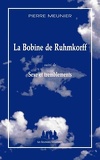


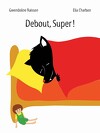
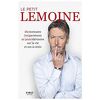




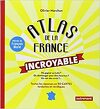


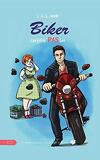













–Veux-tu te taire Edwina, je te prie. Quelle insolence !
Edwina se tut, piquée au vif, ne désirant pas faire de scandale devant les militaires, mais ses yeux de jade brillaient d’une lueur mauvaise pour sa mère.
Tout le monde se regardait, gêné. Pourtant, aussi brusquement qu’elle était venue, sa fureur la quitta, car elle pensa soudain à son père. Et au bout d’un moment, elle dit d’un ton grave :
–Père n’est pas coupable de ce qui est arrivé et il va peut-être le payer de sa vie.
–En effet, affirma le caporal Vanders, mais Fils d’Aigle, lui, est persuadé du contraire. Il faut le comprendre, les soldats du fort sont devenus ses ennemis et votre père, madame Anderson, plus que quiconque est visé, car le chef indien l’estimait énormément. C’était son ami. Pour lui c’est une trahison.
Les quatre femmes échangèrent un regard attristé, se retrouvant dans un réciproque sentiment d’amour envers le général Douglas.
Leslie songeant à son fiancé, émit d’une voix inquiète :
–Ils vont peut-être être tous tués, nous ne les reverrons plus, c’est affreux !
–Ne sois pas si pessimiste, ma chérie, répondit doucement Sharon qui se voulait rassurante, les hommes ne sont pas très nombreux au fort, dans les deux cents environ, mais ils disposent d’un armement récent et d’une quantité suffisante de munitions qui mettront fin rapidement et radicalement aux assauts de ces sauvages, n’est-ce pas caporal ?